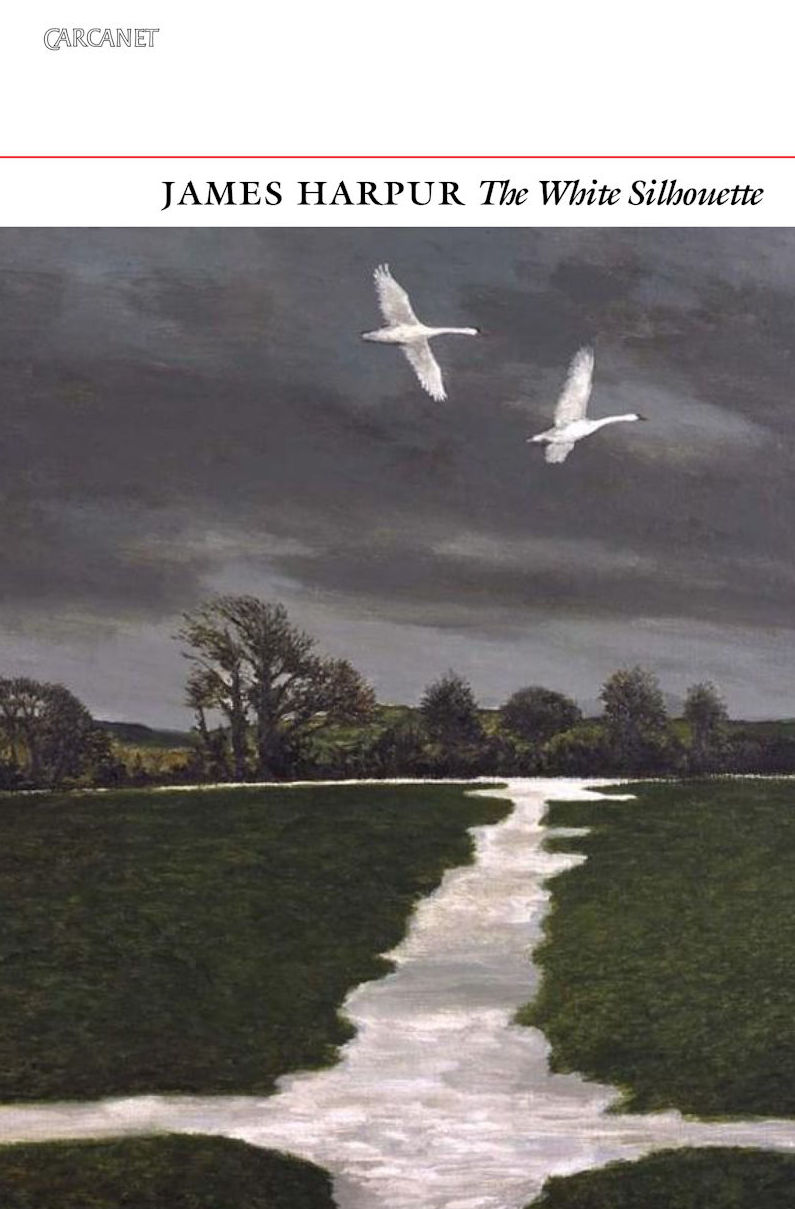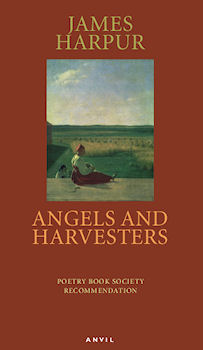| |
|
|
|
|
|
|
|
wzzz |
| |
|
|
|
|
|
|
|
|
| |
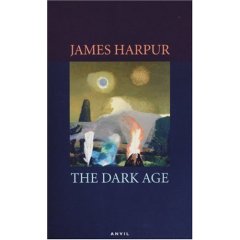 |
|
The Dark Age Winner
of the 2009 Michael Hartnett Award
‘His poetry, always strongly imbued with a sense of the sacred, makes
great play of light’s spiritual resonance ... his brilliant imagery and
luxuriant natural descriptions offer plenty to enjoy.’ Sarah Crown, The
Guardian
'The presence of divinity within
The Dark Age is tender, subtle, Harpur is not proselytising. And if
the force of "God" is present throughout, it's mostly through the
inexplicable process that brings the supernal into art, sewing itself
through the poetry with a gilt thread that makes Harpur's words sing.'
Grace Wells, Contrary Magazine (Chicago)
'Harpur is all rock and soul, a spiritual poet, the visionary in the
desert ...
he is drawn to the early Irish saints (Columba, Kevin, Brendan, Gobnait)
and ... Symeon Stylites, who lived on top of a pillar ... [these themes]
help to unlock the mystical in the poetry reader and the poetic in the
seeker of religious enlightenment.'
Rory Brennan (Books Ireland)
'Despite its title, Harpur's The Dark Age, an exploration of Christian
spirituality and the challenges and losses of middle age, gleams with
images of redemption ... like Eliot's Beckett, Harpur's Stylites is
tempted by both fame and its insidious shadow, spiritual pride; he too
must endure a literal fall in order to achieve understanding that every
human individual "is Christ/Walking along through fields of wheat/Or by
the sea of Galilee". Fiona Sampson, The Irish Times
'This is not California, not
Hockney 's incandescent poolside: it is windswept
Iona and blasted Arimathea ... The Dark Age is a supremely
beautiful
collection.' Thomas McCarthy, Southword
'He writes movingly of the
burden of prophetic obedience, and enables historic echoes of "devilish
tricks", miracles, and powerful prayer to ring true in contemporary
language.' Martyn Halsall, Church Times
'Harpur succeeds in making these half-forgotten heroes of
antiquity live, capturing glimmers of old light for a new dark age ...
they have the feel of bright miniatures painted inside the initial letters
of a medieval manuscript vivid pictures that also happen to talk ...
Harpur leads us into the difficult territory where words cease to be of
use. His triumph in The Dark Age is to make the darkness shimmer
with light.' Duncan Sprott, Agenda
'Most of the other poems in this collection do use set forms, with
breathtaking fluency. Harpur's use of rhyme, phrasing and diction have a
seemingly effortless grace ... the book's part 2 is a series of thirteen
sonnets about Irish saints ... Each story is perfectly encapsulated. Irish
settings are evoked in almost every one ... The Dark Age opens with
'Roscommon Rain', one of the most lovely poems about rain you could hope
to read.' Mark Roper, Poetry Ireland Review
|
|
|
| |
|
|
|
| |
|
|
|
| |
|
|
|
| |
|
|
|
| |
|
|
|
| |
|
|
|
|
| |
Tel: +44 (0)20 8469 3033
Fax: +44 (0)20 8469 3363
info@anvilpresspoetry.com
|
|
|
|
| |
|
|
|
| |
|
|
|
| |
|
|
|
| |
|
|
|
| |
|
|
|
| |
|
|
|
| |
|
|
|
| |
|
|
|
| |
|
|
|
| |
|
|
|
| |
|
|
|
|
| |
|
|
|
|
| |
|
|
|
|
|
|
|
|
| |
|
|
| |
|
|
|
|
|
|
|
|
| |
|
|
|
|
|
|
|
|
| |
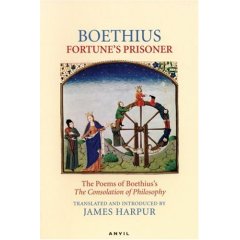 |
|
Fortune’s Prisoner: The Poems of Boethius’s Consolation of Philosophy
‘Imprisoned by Theodoric,
the Ostrogothic king of Italy, and facing the possibility of execution,
the Roman statesman and philosopher Boethius (c. 480-524) wrote his famous
Consolation of Philosophy, a work that combines prose with verse.
‘With a poet’s flair, James
Harpur has rendered the Consolation’s poems in a fresh, modern translation
as a sequence in their own right. From the prisoner’s initial despairing
dirge, to Philosophy’s final plea for people to recognize their divine
nature, the poems explore classic themes such as the character of Fortune,
free will, the problem of evil and the nature of justice.
‘For poetry lovers, Classicists and Boethius enthusiasts alike, this is a
book that takes the reader on journey into the mind and soul of one of the
most profound and influential of Roman writers.’
‘Boethius’s deeply
intricate thought is here distilled into beautiful aperçus .... as a dream
dreamt in a cell of nightmare, it should inspire everyone.’
Murrough O’Brien, Independent on Sunday
'Harpur has done a fine job in
presenting his subject in a fresh and original way.'
Rory Brennan, Books Ireland
'Harpur makes exquisite music out of
this material ... He has made true poems in our vernacular, but the
language, or clusters of images and persons, does
create an alternative, complete world. It is fine work.' Thomas
McCarthy, Southword
|
|
|
| |
|
|
|
| |
|
|
|
| |
|
|
|
| |
|
|
|
| |
|
|
|
| |
|
|
|
| |
|
|
|
| |
|
|
|
| |
|
|
|
| |
|
|
|
| |
|
|
|
|
| |
Tel: +44 (0)20 8469 3033
Fax: +44 (0)20 8469 3363
info@anvilpresspoetry.com
|
|
|
|
| |
|
|
|
| |
|
|
|
| |
|
|
|
| |
|
|
|
| |
|
|
|
| |
|
|
|
| |
|
|
|
| |
|
|
|
|
| |
|
|
|
|
|
|
|
|
| |
|
|
| |
|
|
|
|
|
|
|
|
| |
|
|
|
|
|
|
|
|
| |
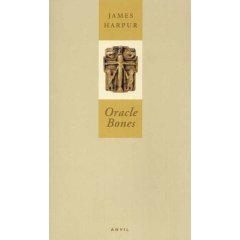 |
|
Oracle Bones
‘James Harpur is ... not in
the least like anyone else ... His is an amazingly consistent voice,
compelling in intensity....his is a world of insight and intuitions....If
you’re brave enough, read him. He will take you into a world you will find
difficult to forget.’ R.J. Bailey, Envoi
“Harpur takes the stuff of
superstition – a Celtic monk, a Delphic priest, an Assyrian extispicist, a
superannuated auspex – and gives it a persuasively timeless, often
disturbing significance ... Oracle Bones offers a kind of religious
poetry. It does not, however, carry a whiff of the ‘pious’ – rather, it
has ‘a sense of the sacred running in parallel to the quotidian’. Peter
Reading, TLS
‘The movement of the verse
is beautifully controlled, the employment of rhyme (or, more precisely,
near-rhyme) wonderfully delicate. Harpur’s craftmanship articulates a
sense of profound spirituality – especially in ‘Dies Irae’, a long poem,
spoken out of the Dark Ages, that I felt compelled to read over and over
... The volume of poetry published this year that I have returned to most
often ...’ Anthony Haynes, The Tablet (Books of the year)
‘This is serious stuff ...
a map of heaven and hell, of prayer and meditation, of redemption and of
unity ... Harpur’s genius has in ‘Dies Irae’ produced the answer to ‘The
Waste Land’ that Eliot himself was himself incapable of. It remains only
for the rest of us to catch up, and catch on.’ Michael Killingworth, Magma
|
|
|
| |
|
|
|
| |
|
|
|
| |
|
|
|
| |
|
|
|
| |
|
|
|
| |
|
|
|
| |
|
|
|
| |
|
|
|
| |
|
|
|
| |
|
|
|
| |
|
|
|
| |
|
|
|
|
| |
Tel: +44 (0)20 8469 3033
Fax: +44 (0)20 8469 3363
info@anvilpresspoetry.com
|
|
|
|
| |
|
|
|
| |
|
|
|
| |
|
|
|
| |
|
|
|
| |
|
|
|
|
|
|
|
|
| |
|
|
|
|
|
|
|
|
| |
|
|
| |
|
|
|
|
|
|
|
|
| |
|
|
|
|
|
|
|
|
| |
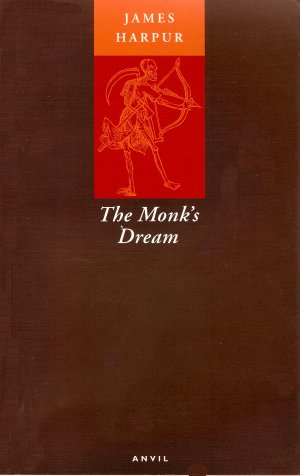
|
|
The Monk’s Dream
“James Harpur’s second book
is disciplined, intelligent...His sources are the Bible, the Aeneid, Bede
and Irish laments. But Harpur doesn’t flirt with erudition. The Monk’s
Dream is an intricate exploration of death – not death alone, but the
mystery that surrounds the experience...The title poem...suggests a belief
in unseen forces, be they supernatural or imaginative; because of these,
an ordinary life is significant beyond death. This idea also informs
several of the book’s excellent translations and adaptations. In all, The
Monk’s Dream is a finely weighted and balanced work of elegy.” Richard
Tyrell, TLS
“His whole collection
represents a struggle with a conundrum with mortality...At the centre is
the sonnet sequence about his father’s death, ‘The Frame of Furnace
Light’. It is an extraordinary piece of writing... Harpur represents his
father with such clarity and sympathy as to render his gradual decline
almost unbearable.” Maggie O’Farrell, Poetry Review
“Harpur’s work is grounded
in a firm awareness of the ‘sensate life’...but whether in an unnamed
monk’s prophetic dream of the death of William II, in Enkidu’s dying dream
of the underworld, or in the spiritual apprehensions which characterise
the more directly personal poems, there is everywhere a sense of what lies
beyond the limitations of the merely sensate. Harpur is a serious and
intelligent poet who deserves to find many readers.” Glyn Pursglove,
Acumen
‘Sure-footed and
accessible, with the occasional touch of that rarest of qualities, pure
insight.’ Glyn Holden, Ambit |
|
|
| |
|
|
|
| |
|
|
|
| |
|
|
|
| |
|
|
|
| |
|
|
|
| |
|
|
|
| |
|
|
|
| |
|
|
|
| |
|
|
|
| |
|
|
|
| |
|
|
|
| |
|
|
|
|
| |
(Out of print) |
|
|
|
| |
|
|
|
|
| |
|
|
|
| |
|
|
|
| |
|
|
|
| |
|
|
|
| |
|
|
|
| |
|
|
|
| |
|
|
|
|
| |
|
|
|
|
|
|
|
|
| |
|
|
| |
|
|
|
|
|
|
|
|
| |
|
|
|
|
|
|
|
|
| |
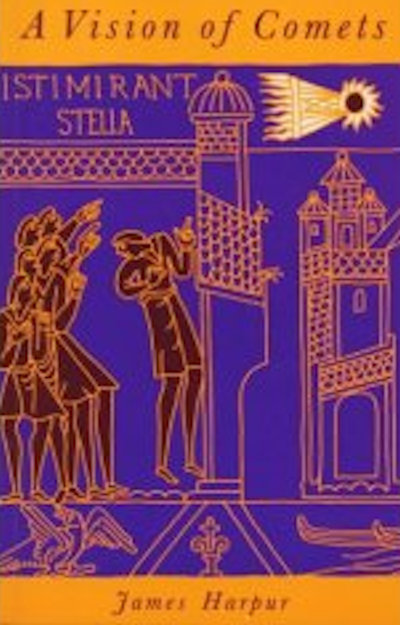 |
|
A
Vision of Comets
“Mandalas, heavenly bodies, Greek mythology,
temples and cathedrals give James Harpur’s first collection a sense of the
sacred running in parallel to the quotidian, and while the poems often
reach into the exotic or esoteric, they are nevertheless accurately and
cleanly made observances of a world the senses have access to.” Poetry
Ireland Review
“Harpur is just how I like poets – skilled,
erudite, in love with language, and with proper humility.” Stride
“Harpur’s tunes are chiefly lyrical ... the
‘welter of accumulated memories’is skilfully caught.” Independent on
Sunday
“It is in his poems on religious themes that the
poet comes into his own, skillfully using a fluid free verse in the
monologues ‘Samson to his Maker’ and ‘Messiah’ and creating a frieze of
great charm in ‘The Magi’. Poetry Wales
“Harpur’s sensibility is attuned to love, time,
myth, the numinous – the makings of poetry...my opinion warmed as I read
... Harpur has an imaginative wonder.” London Magazine
|
|
|
| |
|
|
|
| |
|
|
|
| |
|
|
|
| |
|
|
|
| |
|
|
|
| |
|
|
|
| |
|
|
|
| |
|
|
|
| |
|
|
|
| |
|
|
|
| |
|
|
|
| |
|
|
|
| |
|
|
|
| |
|
|
|
|
| |
Tel: +44 (0)20 8469 3033
Fax: +44 (0)20 8469 3363
info@anvilpresspoetry.com
|
|
|
|
| |
|
|
|
| |
|
|
|
| |
|
|
|
|
|
|
|
| |
|
|
|
|
|
|
|
| |
|
|
|
|
|
|
|
| |
|
|
|
|
|
|
|
|
| |
|
|
| |
|
|
|
|
|
|
|
|
| |
|
|
|
|
|
|
|
|
| |
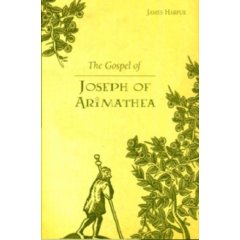
Order from
www.ionabooks.com |
|
The Gospel of Joseph of Arimathea
'James Harpur uses the legend of
Joseph of Arimathea's voyage to Britain's shores with the young Jesus as
the prompt for Joseph to search out those who were closest to Jesus in his
final years. As he continues to travel around on business, Joseph
describes each meeting in prose, and then the person he is visiting tells
of his/her time with Jesus in hauntingly beautiful poetry. The words play
on your imagination till you can see the scene that they are describing. I
found I had to read it to myself as if I was reading aloud, and then go
back to the beginning and read it through again and again.'
Mary Bartholomew GoodBookStall
|
|
|
| |
|
|
|
| |
|
|
|
| |
|
|
|
| |
|
|
|
| |
|
|
|
| |
|
|
|
| |
|
|
|
| |
|
|
|
| |
|
|
|
| |
|
|
|
| |
|
|
|
| |
|
|
|
| |
|
|
|
|
| |
|
|
|
|
|
|
|
|
| |
|
|
|
|
|
|
|
|
| |
|
|
|
|
|
|
|
|
| |
|
|
| |
|
|
|
|
|
|
|
|
| |
Home
Poems
Tutoring
Contact |
|
|
| |
|
|
|
|
|
|
|
|
